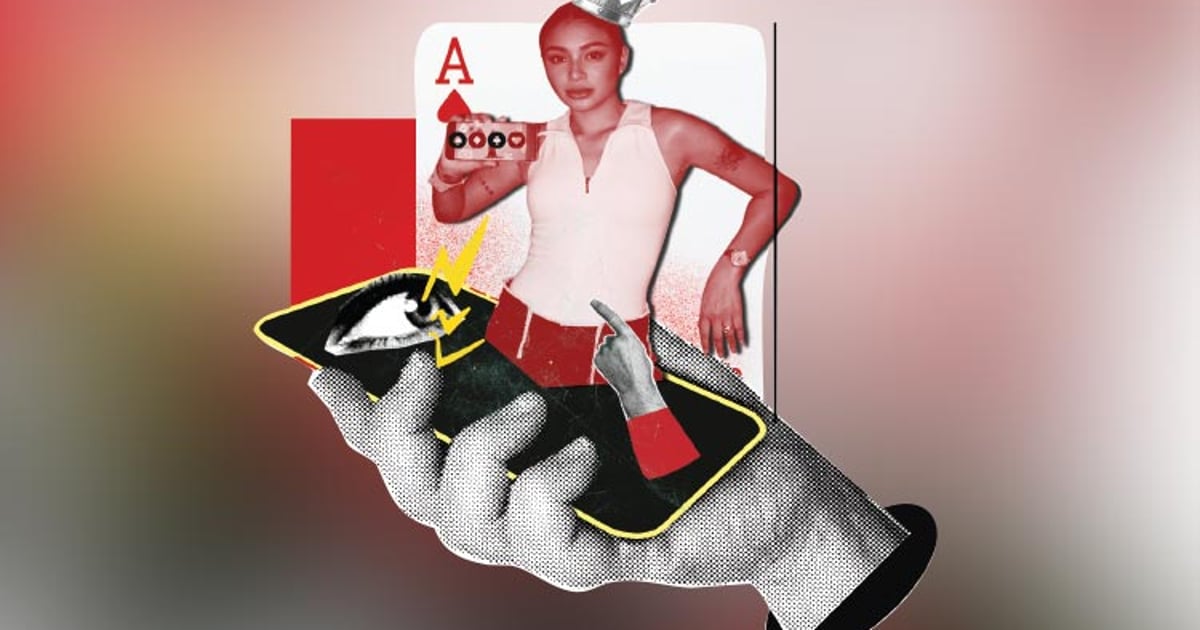
The internet has plenty of reasons to rage against the growing tide of online gambling, but when Nadine Lustre, posing with her phone, endorsed the launch of an online casino, it became the tipping point.
Known for using her platform to challenge societal norms and speak out on social issues, Lustre has earned the title of “president” among her fans for her fearless voice in a conservative country. Yet, her recent slip into the world of digital roulette sparked a storm of outrage. Beyond Lustre herself, this incident became a call to the netizens and a warning about the deceptive nature of online gambling — promises of quick riches often lead to shattered lives and mounting losses.
So why is participation in online gambling seen as such a major issue, and why does a celebrity’s involvement make it even more alarming? The explanation is simple — Nadine’s fanbase is largely made up of young people, who are more likely to develop gambling addictions without grasping the long-term consequences.
Easier access
In the Philippines, the legal gambling age is 21 (Republic Act 9287), but the accessibility of online platforms has made it alarmingly easy for minors to bypass restrictions. These platforms exploit vulnerabilities through aggressive marketing strategies. As highlighted by Mike Robb, senior director of research at Common Sense Media, in a 2024 Parents.com interview, gambling ads often employ humor, celebrity endorsements and memes that appeal directly to children and young people.
Gambling addiction
The backlash against Lustre revealed an unexpected silver lining: the voices of younger people who criticized her. Ironically, research published by the American Psychological Association (APA) noted that young people, especially boys and men, are particularly vulnerable to gambling addiction. They are also the ones most likely to engage in newer forms of gambling, such as sports betting and video game-based gambling.
Yet in the Philippines, the young ones’ collective outrage signals a growing awareness of gambling’s pitfalls. But awareness is not enough. Lawmakers are stepping in to address the issue. Resolutions have been filed in the Senate to investigate how Filipino minors are gaining access to gambling through poorly regulated platforms. Sen. Lito Lapid, in a 2024 GMA report, stressed the need for action: “One way to protect the Filipino youth is to examine seemingly harmless platforms, such as social media sites, payment hubs and the like, to ensure they are not being misused for illegal online gambling activities. Sufficient safeguards and programs must be in place to prevent Filipino children from being lured and victimized by online gambling.”
Harsh reality
The true cost of online gambling extends far beyond lost money. An article by The Diplomat in 2024 detailed its predatory nature — rigged games, exploitative marketing and systems designed to foster addiction. These platforms lure players with promises of easy winnings but leave many in financial and emotional ruin. As the APA noted, gambling addiction mirrors substance abuse: it involves a growing tolerance requiring higher stakes, withdrawal symptoms like irritability and, in severe cases, life-altering consequences.
The human stories behind these statistics are heartbreaking. In a Pep.ph report, Butch, a recovering gambling addict from Pasig, shared how he was first introduced to betting in Grade 3. His addiction escalated over the years, from betting on sports to playing slot machines and lotto. The emotional toll of losing left him frustrated, despondent and nearly broken.
Finding a way forward
Ultimately, the controversy revealed how celebrities have a significant influence on public behavior, whether intentional or not, and how their actions can have consequences that extend far beyond their personal brand. The power of celebrity endorsements is such that it can blur the lines between entertainment and responsible behavior, leading people to view gambling as just another form of leisure or recreation, rather than a potentially dangerous addiction. In many cases, these endorsements overlook the social and economic costs associated with gambling, including the strain it places on families, communities and public health systems.